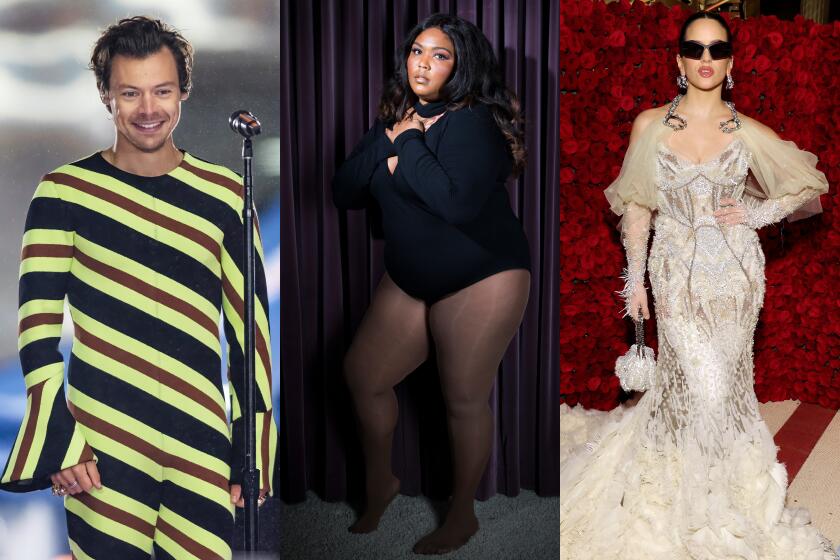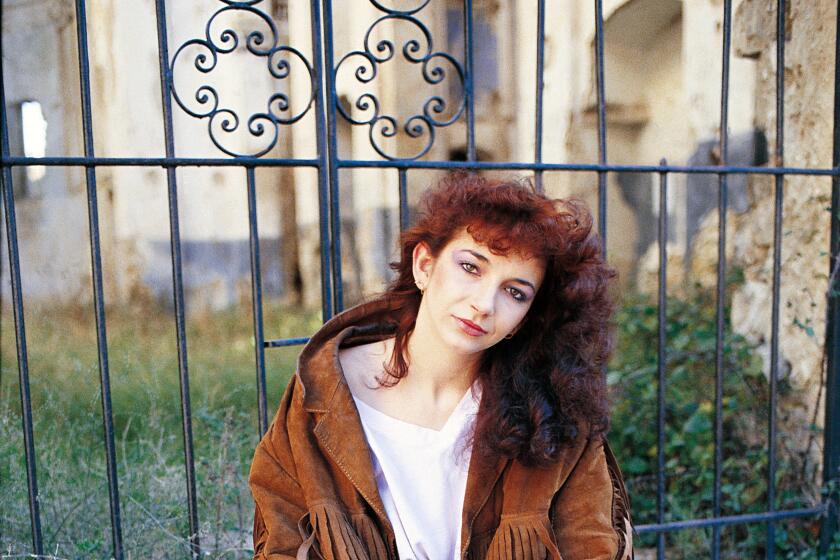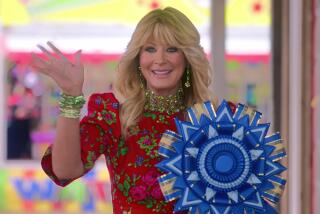How Disney star Dove Cameron became ‘the bad girl next door’
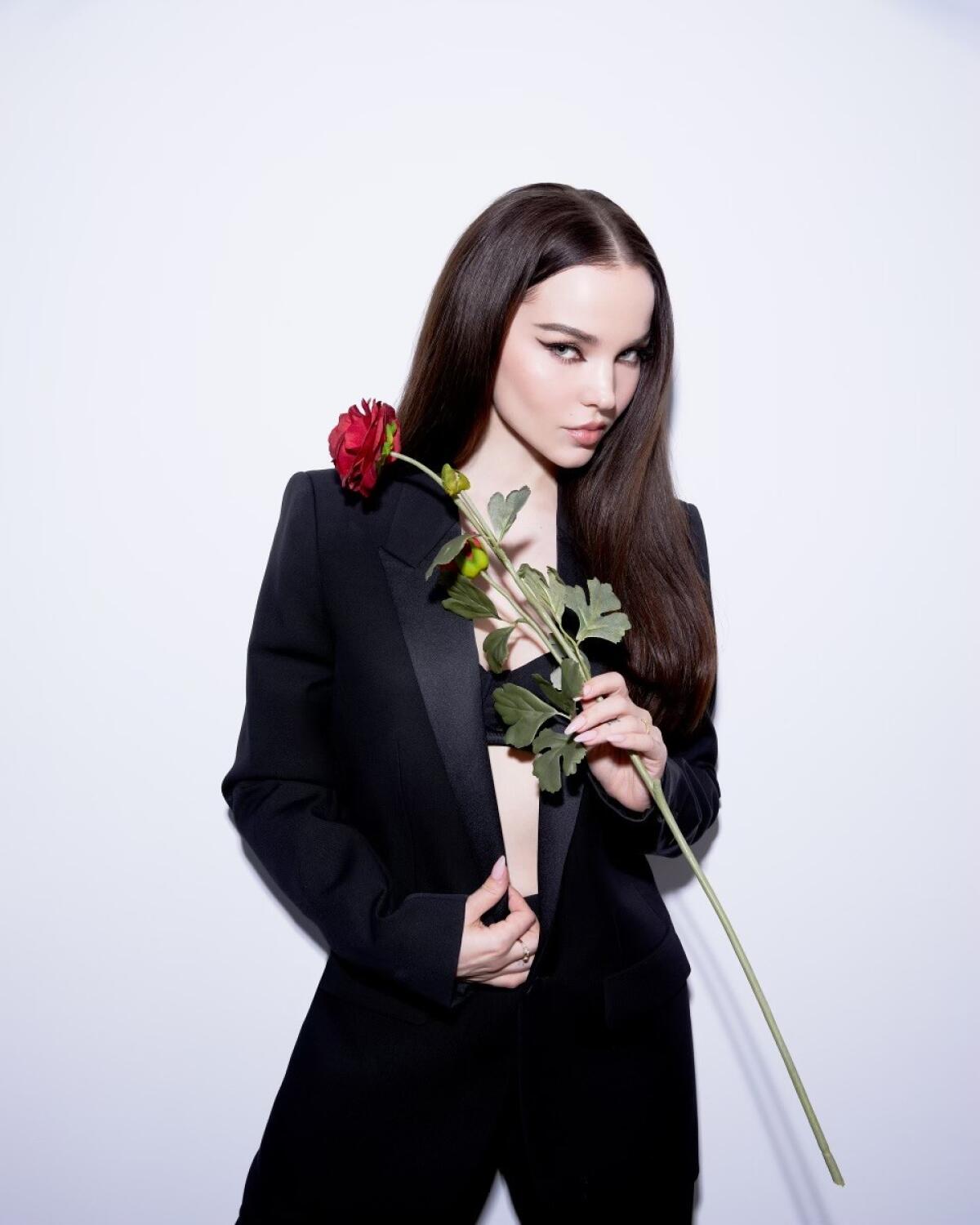
“I’ve gone from the girl next door to the bad girl next door.”
With a laugh — and an almost audible eye-roll — that’s how Dove Cameron describes the journey she’s been on with “Boyfriend,” the sly, smoky electro-pop single that’s made her one of 2022’s breakout music acts after nearly a decade of acting work in the Disney Channel trenches. In the song, which has been streamed more than 250 million times on Spotify and YouTube, the 26-year-old enumerates some of the many ways she could improve upon a woman’s boyfriend, not least her greater stamina and the fact that the women could share a wardrobe.
“The universe must have divined this,” she sings over a snarling spy-movie groove, “Ladies first, baby, I insist.”
“Boyfriend” presents a darker vision than Disney’s smiley “Liv and Maddie” series, in which Cameron played a pair of identical twins, and its “Descendants” series, in which Cameron’s the daughter of Maleficent. So too does “Breakfast,” Cameron’s brand new follow-up single about how she could eat a guy like you for — well, you get it. And part of that is growing up, of course. Yet Cameron says that, even at its most playful, her music also bears the weight of an inordinately traumatic upbringing that included the murder of her best friend by the friend’s father (when Cameron was 8) and her own father’s death by suicide (when she was 15). She called the other day from Vancouver, Canada, during a break from shooting Season 2 of the Apple TV+ series “Schmigadoon!” to talk about it.

Plenty of women have preceded you in figuring out how to define themselves outside the Disney machine. Anyone whose journey you particularly admire?
I never had that moment where I was like, “I am a Disney girl.” I never looked at Miley or Demi or Selena or Zendaya or Bella or anybody — Hilary Duff or anybody that came before me — I never looked at them and thought, you and me — same. I was always the strange outlier who doesn’t belong and who will never fit in. I had huge impostor syndrome. I felt like I was wearing a rubber mask or something. So I don’t really look to anybody else for a roadmap. I mean, this whole narrative that I was on Disney and then found my way out with a pop song, it was a total f— accident.
So you’re not on a group chat with a bunch of other recovering Disney kids?
You know what’s crazy? I’ve only met Selena one time, and I’ve never met anybody else.
That seems impossible.
Well, I was doing the twins show where it was just me and me, and then I was doing “Descendants” in Canada for three months. It’s an isolated journey. I think the Miley/Selena/Demi trifecta, they met because they were all there at the same time. I’m imagining they were all on the lot together. Also — and I cannot stress this enough — my life has always been personal stuff first and career stuff, like, fourth. More often than not my life is therapy, journaling, songwriting, poetry. I don’t really run into people very often.
Gen Z pop, Latin beats from around the globe, Nashville’s finest, sinewy hip-hop and R&B: Musically speaking, at least, 2022 has been a blast so far.
Before your “Boyfriend,” Justin Bieber released a song with the same title. So did Ariana Grande. And Selena Gomez. And Ashlee Simpson.
There was actually a point when my label was asking me to consider naming it “Gentleman” because there were so many other songs called “Boyfriend.” But I really wanted to call it “Boyfriend” because I’m very aware — painfully aware — of the sort of concoction of who I am in the public eye. And that [concoction] is such a far cry from who I am. People are like, “But you were blond and you were dating men and you were on the Disney Channel.” Yes, but there were always so many more dimensions. It’s just that the space I was in would never have allowed me to express those dimensions. Arriving at the person I am now, I’m relaxing into the freedom to poke fun at who people think I am.
Your “Boyfriend” is toying with the gendered connotations of such a familiar word.
But it’s not like, “I tricked you, and now here I am!” It’s almost like I’m roasting myself in so much of the stuff I create. “Boyfriend” being such a misleading title helps me acknowledge where I was and who I am now. I love to highlight the discrepancies between the two.
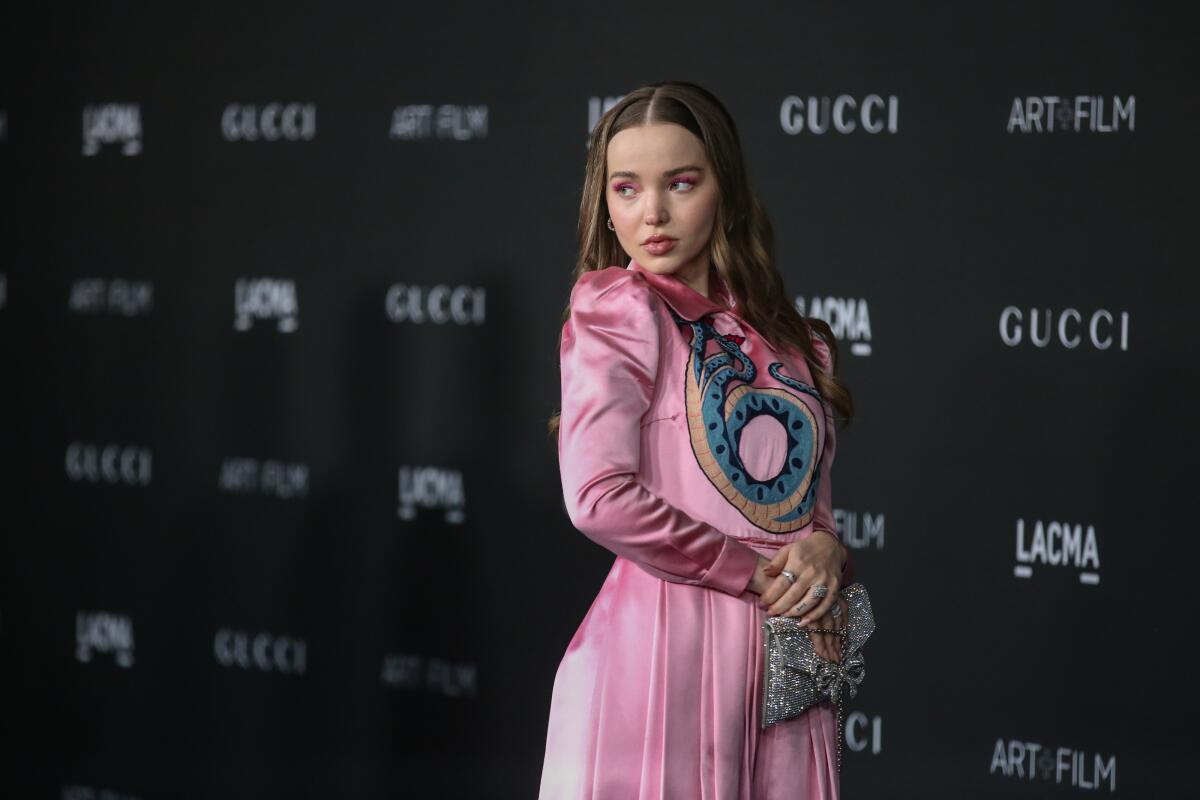
Talk about the development of your voice. It’s quite low and sultry in “Boyfriend” and “Breakfast,” but in 2019 you starred in the musical “The Light in the Piazza,” where your role called for airy and sweet.
I was very protective of my voice for a long time. I was born a coloratura [a type of operatic soprano], but it’s so hard to live that way. It’s monastic — you have to prioritize your voice above everything else. I remember meeting Kristin Chenoweth when I was 15 or 16, and I was like, “How do I do this?” and she said, “Here’s the litany of ways that I’m able to preserve my voice.” I thought, holy f—, there’s no way I can do that and still do everything else I want to do. And so my voice accrued damage. I spoke more, I sang more, I was working more — seven days a week, 18-hour days. And when you do that, your voice just gets raspier. Then I began to lean into that over the course of a few years in the recording studio. If I were to do any kind of coloratura placement again I’d need months of time to heal everything that’s happened.
It’s interesting that what’s compelling about your voice is a result of the harm you’ve done to it.
It’s like a running joke: The thing that me and Dua Lipa and Billie Eilish all have in common is damage, honey. But it’s true. If you want to talk about how the body reflects our lives, I do think that my voice developing in the way it did is a reflection of a lot of pain in my life.
You’ve said “Boyfriend” was inspired by a specific incident with a specific person. Is the same true of “Breakfast”?
“Breakfast” came about because I wrote this really angry poem where the last line is “I floss my teeth with men like you.” I brought that into the studio right after “Boyfriend” started to blow up on TikTok because I felt like I was writing this body of work that was all very villain-who-is-the-main-character. A lot of the characters that I related to growing up as someone who was deeply traumatized from a young age with death and loss and things like that — a lot of those characters were villains. So I wanted to start writing for that character. We got the line “I eat boys like you for breakfast” because “I floss my teeth with men like you” just doesn’t sing as well.
Bush, a rare female auteur in the male-dominated music world, has inspired a raft of acclaimed artists from Fiona Apple to FKA Twigs to Japanese Breakfast.
Fans have framed “Boyfriend” as a queer anthem. How does “Breakfast” embody your queerness?
Every song of mine is a queer song because I’m a queer artist. Does that mean that every song is “I am G-A-Y”? No. I think there’s gonna be a lot of room in my artistry to talk about things other than that I love women. And “I eat boys like you for breakfast” does not translate into “I hate men and I only date women.” It means this one guy is a d— and I can take him in a fight. I’m a pansexual artist, so I’m attracted to and in love with who I’m attracted to and in love with.
Did you think of coming out as a decision that would shape the rest of your career?
I thought about that for a moment — not as an impetus or as a halt, but just like a brief meditation. I have no interest in living a life that isn’t entirely, energetically bold and truthful. And my sexuality is such a natural part of who I am and how I relate to the world that if I thought keeping it a secret would positively impact my career, I just wouldn’t be in this line of work.
Are you optimistic that people won’t have to make choices like that going forward? Homophobic legislation like Florida’s “Don’t Say Gay” bill paints a different picture.
I think that’s a sort of death scream, as my mom likes to say — a death rattle, where a thing gets louder and more thrashy when its existence is threatened. I’m not saying that everything is great now. But I do think that if that type of thinking wasn’t under threat, we wouldn’t hear about it as much because it would be the dominant voice. We wouldn’t even notice it.
More to Read
The biggest entertainment stories
Get our big stories about Hollywood, film, television, music, arts, culture and more right in your inbox as soon as they publish.
You may occasionally receive promotional content from the Los Angeles Times.
